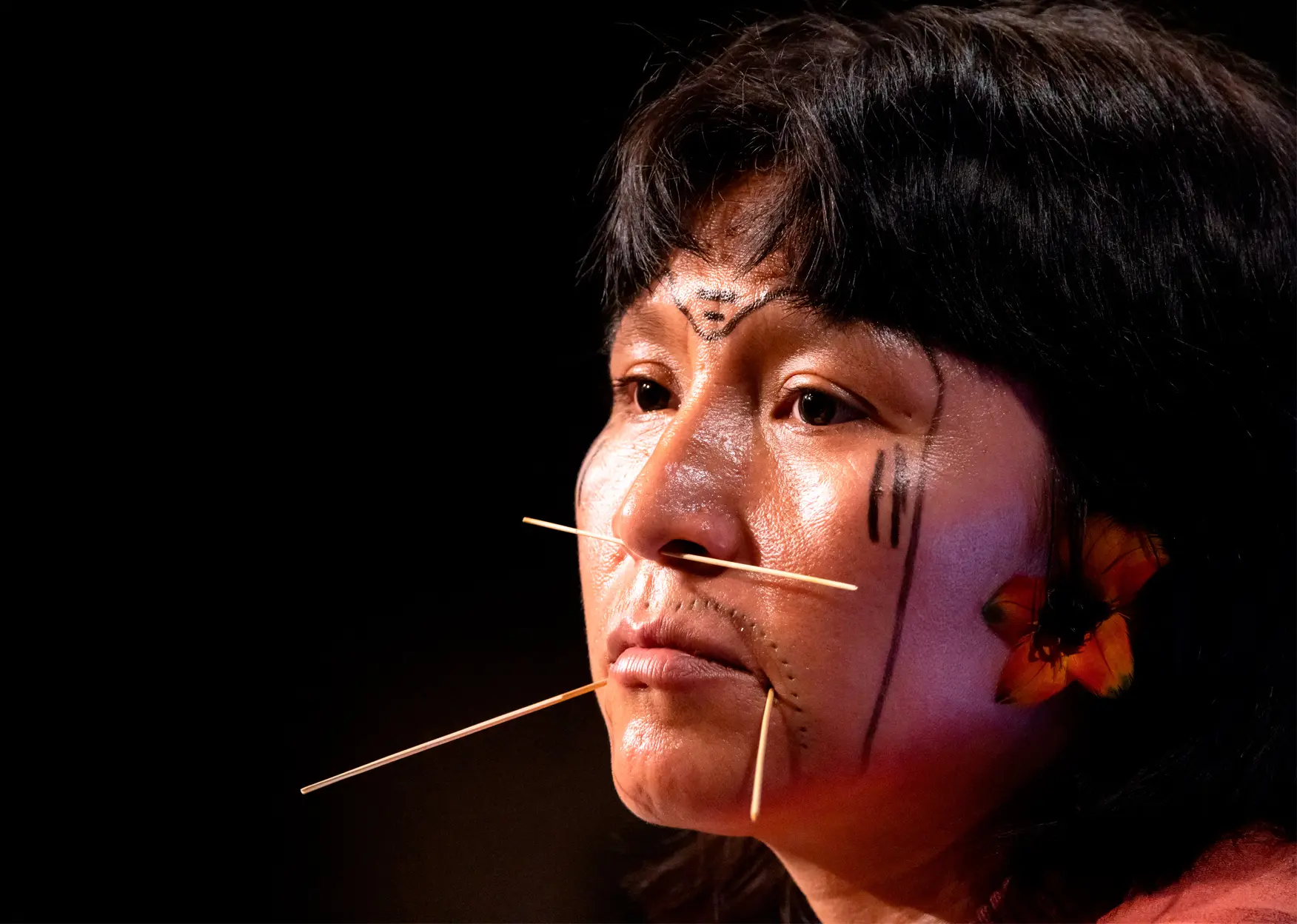Brazil has a trap to spring before COP30. November’s climate conference in Belém is threatened by a diplomatic battle over finance that could forestall two measures seen as essential to containing the planet’s heating: the gradual elimination of fossil fuels and the preservation and restoration of ecosystems, ending deforestation around the world.
It was clear who the leading players in this battle were at the United Nations’ mid-year Climate Conference, held in late June, in Bonn, Germany. This pre-COP foreshadows the direction negotiations will take at the end-of-year conference.
On one side of the dispute is the European Union, which, following Donald Trump’s withdrawal of the United States from the Paris Agreement, finds itself with few allies in the climate negotiations, including Japan, Canada, and Australia. On the other side are the self-denominated Like-Minded Developing Countries or LMDCs, which include, among other nations, India, China, Saudi Arabia and Bolivia.
Despite its name, this group has an array of fundamental interests. India’s priority is to reopen the agreement reached on financing at COP29, in Azerbaijan. According to this agreement, the materially rich and historically polluting countries were able to dilute their obligation, as established in climate treaties, to finance actions to fight the planet’s heating in nations that have fewer monetary resources. While Saudi Arabia and other oil exporters, such as Iraq, are primarily looking to force a retreat in the commitment to “transition away” from fossil fuels that was approved by all countries at COP28, in Dubai. China’s biggest complaint regards “unilateral trade measures,” such as the carbon tax the European Union will charge starting in 2026 on exports coming into the bloc. China, which currently emits the most greenhouse gases, argues that as it is also one of the biggest providers of solar and wind energy equipment, penalties on its foreign sales would not be fair.
The Europeans are mounting fierce resistance to reopening negotiations on finance. In Bonn, they tried to remove references to “means of implementation” from the draft documents being sent to Belém for discussion and approval, references, in other words, to the need to provide money and technologies for the energy and ecological transition. At the same time, they are demanding “more ambition” from the other countries and are trying to introduce a surveillance clause for their national budgets.
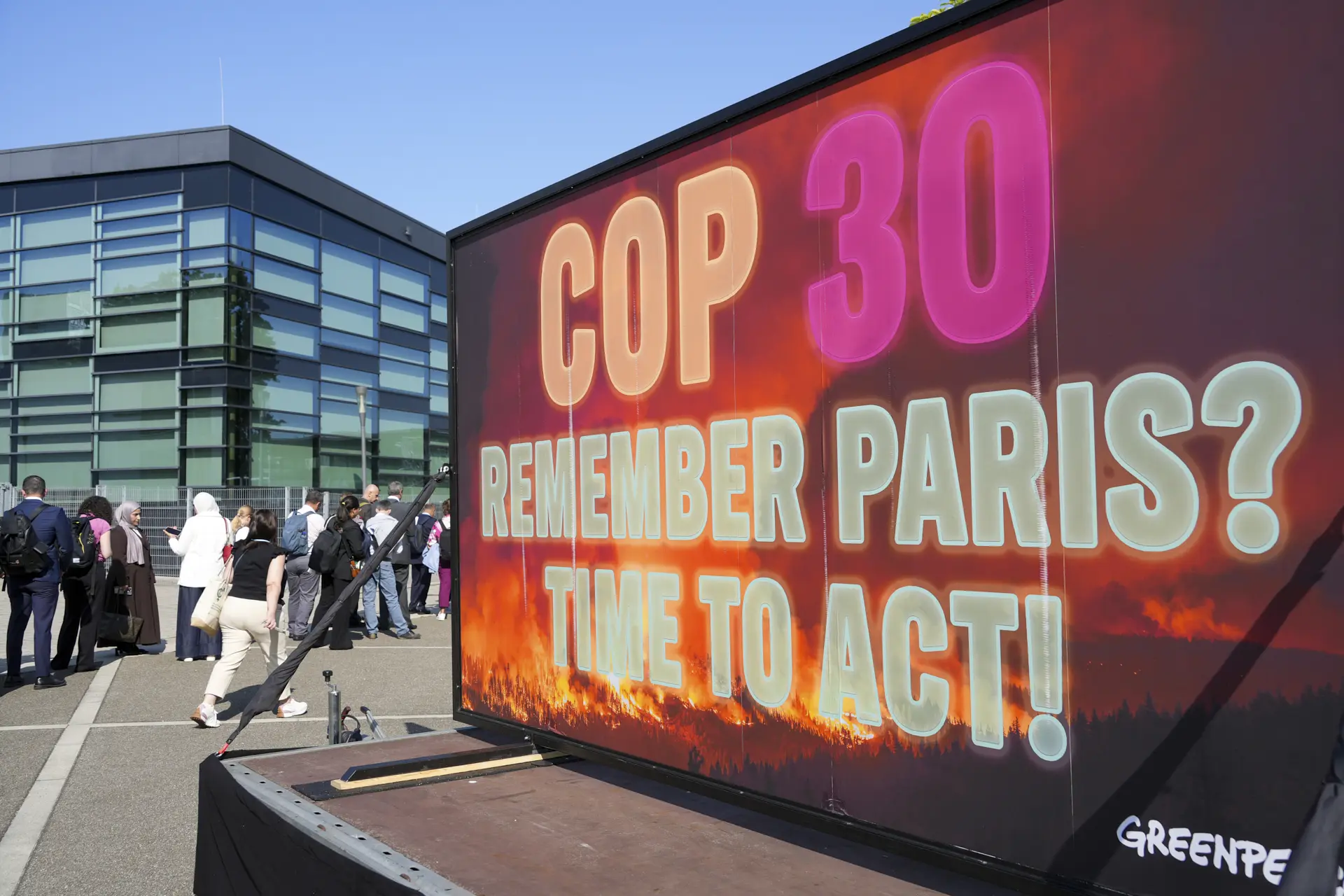
THE PARIS AGREEMENT TURNS 10: GLOBAL TENSIONS ARE UNDERCUTTING THE URGENCY OF ACTIONS TO FIGHT CLIMATE CHANGE. PHOTO: MARIANA CASTAÑO/10 BILLION SOLUTIONS
This dispute creates a vicious cycle where, without financing, nothing moves forward. The whole world ends up losing, at precisely the moment when scientists are warning the “carbon budget” only has three years left. This means if greenhouse gas emissions continue at current levels for another three years, the Paris Agreement’s most ambitious goal, of limiting the increase in the average temperature on the planet to 1.5 C, will be definitively shattered, with drastic consequences for life. The biggest losers in the short term are for the most part the less wealthy nations and island countries, which need outside support and have contributed less to climate change.
The ferocity of the battle that began in Germany was a surprise to the Brazilian negotiators and became a “big problem” for the country hosting the climate conference this year, as one of them acknowledged in a conversation with SUMAÚMA. Liliam Chagas, Brazil’s chief negotiator, said that Brazil will need to deal with the matter right away to prevent a “tumultuous start” in Belém: “We understand many countries want a space to discuss the role of public financing, to discuss how the developed countries are committed to contributing resources, and we will have to see how to bring this to COP30,” she said.
Brazil had, to an extent, already predicted the difficulties in the “negotiation agenda,” which depends on consensus among the over 190 countries in the Climate Convention and Paris Agreement. So much so that in Bonn, COP30 president André Corrêa do Lago and the conference’s executive director, Ana Toni, introduced their “action agenda,” the core of climate conferences made up of commitments announced by groups of countries, cities, companies, and non-profit organizations.
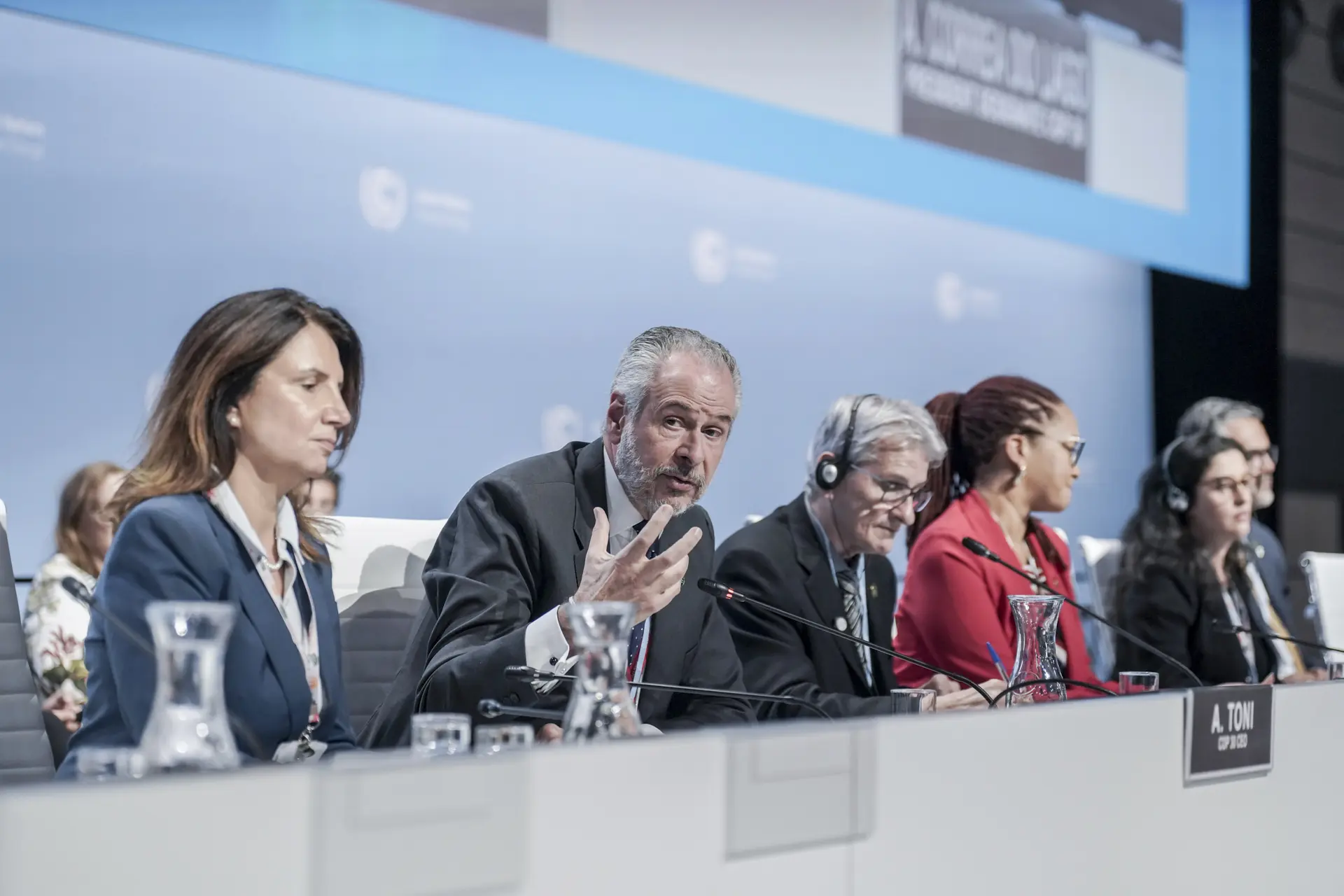
ANA TONI AND ANDRÉ CORRÊA DO LAGO: THE PRESSURE IS ON COP30 LEADERS TO LISTEN TO THE COUNTRIES MAKING PROPOSALS. PHOTO: RAFA NEDDERMEYER/COP30 BRASIL AMAZÔNIA/PR
Unlike the consensus documents, these commitments have no value as international law, yet the Brazilians want them to serve to implement the Global Stocktake, the document approved at COP28. The Global Stocktake lists the measures needed for fulfillment of the Paris Agreement, including gradual elimination of fossil fuels and zero deforestation in 2030. It recommends that countries incorporate these measures into their emissions reduction goals – known as the Nationally Determined Contributions or NDCs. Yet it does not set forth any penalties for those who fail to do so. “Let’s remember that the action agenda is not one of the Paris instruments. What we’re doing is amplifying the instruments we have to see how we can accelerate implementation,” Ana Toni said.
Both Toni and Liliam Chagas stressed that, so far, Brazil’s COP30 leaders have tried to talk with every government and societal representative to find common ground between them. Country delegates have indeed reported receiving more attention than has been normal in previous cycles of preparations for climate conferences. “I’ve already met three times with Brazilian negotiators. They really want the conference to be successful and to show that, at least in this forum, multilateralism isn’t dead,” Lebanese delegate Lea Zgheib said.
Nevertheless, social and environmental organizations fear the common ground found in these talks is minimal, falling far short of what the climate emergency demands, because of the diplomatic battle waged in Germany and the seriousness of the international context. During the 11 days of meetings in Bonn, Trump attacked Iran, the Europeans announced increased military expenditures, and Israel continued to kill Palestinians in food distribution lines in Gaza. Civil society is asking Brazil to immediately move on to hearing proposals, to avoid failure in Belém.
“Geopolitical impasses and slow decisions show that climate diplomacy needs to go beyond good will,” Camila Jardim, of Greenpeace Brazil, said. “Brazil has every condition to be not only a good listener and facilitator, but also a catalyst of ambition and to show that global cooperation is possible. COP30 can be a milestone, but it needs to combine diplomatic skill with a bold vision, pressing for tangible results and reminding the world that, while some invest in wars, the true battle should be against the climate crisis,” she noted.
Fernanda Carvalho, with the WWF, said the “Brazilian action agenda initiative is positive,” but it needs a “political boost” from negotiation. Fernanda is referring to the majority of countries’ reluctance to accept international oversight mechanisms for implementing the Global Stocktake, such as a timeline for ending the consumption and production of oil, gas and coal in a “just, orderly and equitable” manner. “The Stocktake has over 190 articles, and they cover everything, but the ones at the real root of climate change are fossil fuels and the destruction of biomes,” Fernanda said. “That’s why we talk about needing a plan B and a C.”
One of the options would be what is known at the COPs as a “cover decision,” which is when the conference president suggests political agreements on topics that may not be on the agenda of negotiations that was inherited from previous conferences. Another possibility is a negotiation between heads of state and government leaders, at the summit scheduled for November 6 and 7, before COP30 officially starts on November 10.
Liliam Chagas, the chief negotiator for Brazil, said “anything could happen,” but the country is reluctant when it comes to cover decisions, because in the past they have been seen as having little legitimacy. “They weren’t totally negotiated results,” she explained. “Our role is to bring positions closer together and provide the space needed for decision-making. To do this, we rely not only on the countries in multilateral negotiations, but also on the summit held for the heads of state, which is a high-level political space,” she said.
The Belém COP could also benefit from increased Chinese openness to agreements. Yao Zhe, an East Asia Greenpeace adviser, noted that the Asian country’s emissions could possibly peak this year, after which point they would begin to fall. If this happens, the Chinese will make a major contribution to fighting climate change. The problem is that this internal shift is not reflected in climate negotiations. “There is a general hesitation to establish mechanisms that make room to discuss what else everyone can do together,” Yao explained.
Despite sharp differences, some topics slated for the agenda of negotiations in Belém left Bonn better than they arrived. Take a look below to see where the biggest issues stand.
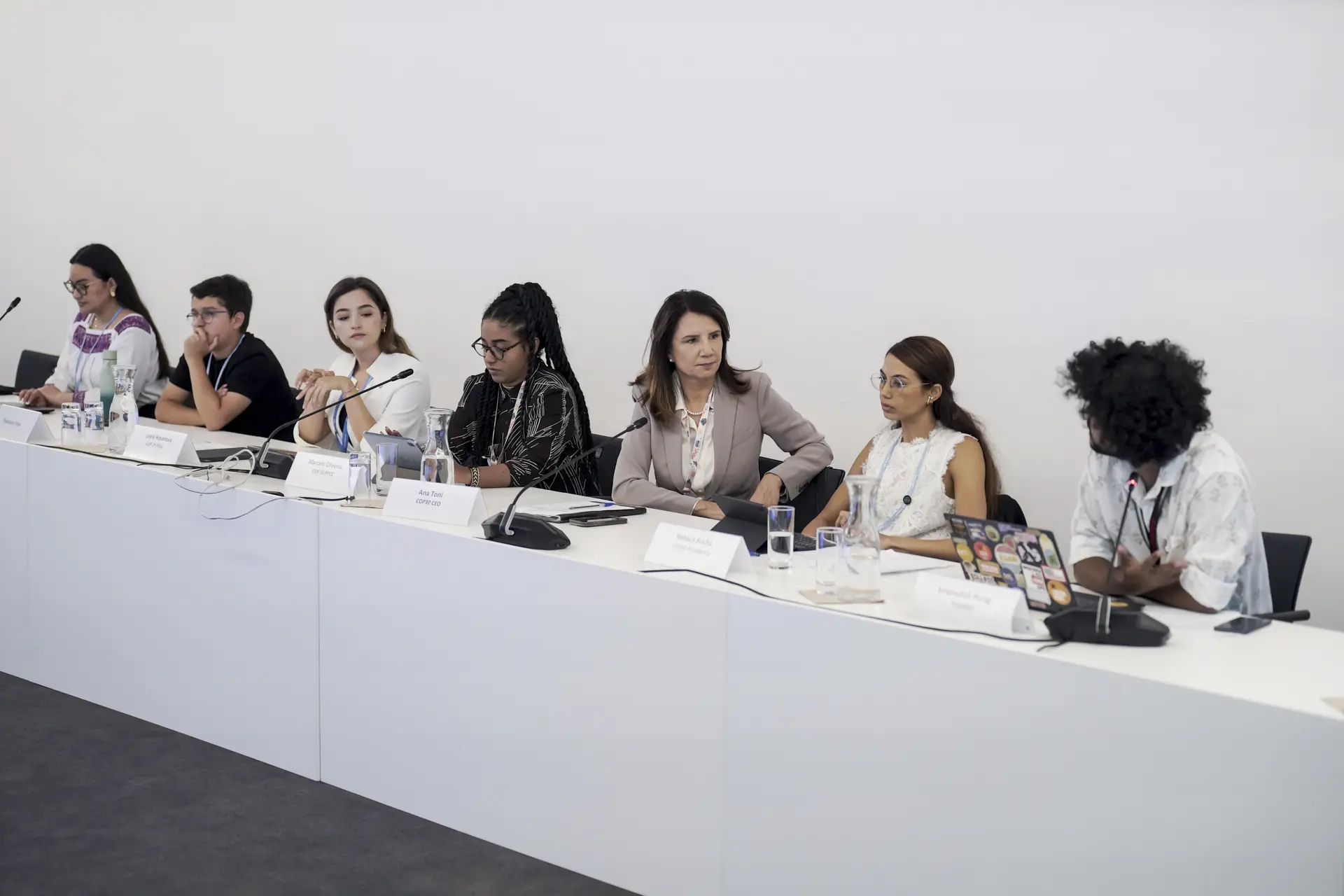
MARCELE OLIVEIRA, THE YOUTH CHAMPION FOR THE COP (AT CENTER, WEARING GLASSES) AND ANA TONI: FOCUS IS ON THE ‘ACTION AGENDA.’ PHOTO: RAFA NEDDERMEYER/COP30 BRASIL AMAZÔNIA
A just transition plows ahead, but still has no destination
The work program on a just transition was established at COP27, in Egypt, to tackle the Paris Agreement goal on a “just transition of the workforce and the creation of decent work and quality jobs.” This concept was expanded in discussions. It went on to include not only formal and informal workers, but also participation and the rights of other groups in society – such as Indigenous people, immigrants, and young people – in building a socio-economic model compatible with preserving life and not entrenching inequalities.
There was no agreement on approving a text on a just transition at COP 28 or COP 29. Yet this was one of the points in the negotiation that most progressed in Bonn. The draft sent to Belém for the first time includes Afro-descendants among the groups considered priorities in the concept of a just transition. Following a suggestion from Colombia, this is also the only document to come out of Bonn that mentions gradually eliminating fossil fuels, in a paragraph discussing expanded access to clean energy. However, the Arab countries suggested an alternative text at the last minute that omits this mention – the final text will be negotiated in Belém.
Beyond this, the major question is whether or not a mechanism will be established to monitor and support implementation of the agreement on a just transition or whether it will just be a statement of intentions.
“The just transition is one of the newest topics at the Climate Convention, but it is extremely relevant,” according to Mariana Belmont, of Geledés – the Black Women’s Institute. “It has a social view that was missing in discussions on mitigation and climate adaptation. This movement needs to advance, so the processes in this transition don’t increase inequalities. Let’s keep track of the next steps for the permanence of Afro-descendants and the creation of a structure that points us toward human rights on the climate agenda.”
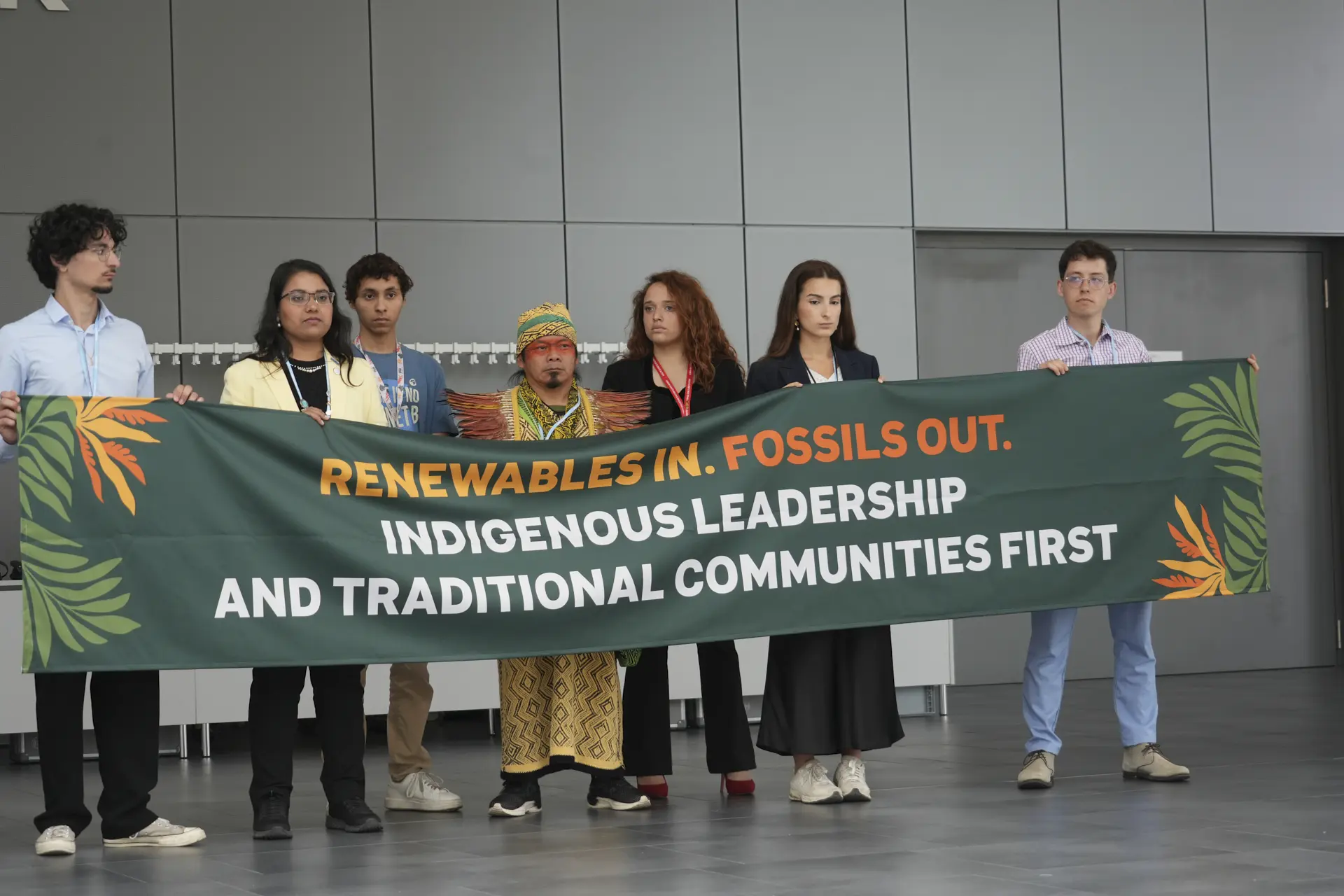
ACCESS TO RENEWABLE ENERGIES FOR ALL: THE DOCUMENT ON A JUST TRANSITION, TO REDUCE INEQUALITIES, ADVANCED IN BONN. PHOTO: 10 BILLION SOLUTIONS
Fossil fuels are still the ‘mammoth in the room’
There isn’t one specific point on the agenda at the climate conferences to discuss gradually eliminating fossil fuels. The “transition away from fossil fuels” is one of the measures listed in the Global Stocktake, the document approved at COP28 with the steps needed to fulfill the Paris Agreement. Like many of the climate documents, the Global Stocktake is also vague on some points of this issue. It does not, for instance, specify whether this regards the use or production of oil, gas, and coal. It does, however, affirm that elimination should be accelerated “in this critical decade.”
Along with the Global Stocktake, COP28 also approved the creation of the United Arab Emirates Dialog to discuss its implementation. Dialog negotiations did not, however, move forward at COP29, in Baku. Difficulties remained at the meeting in Bonn, and the negotiators sent two different drafts to Belém.
Most of the countries are rejecting the creation of a monitoring mechanism for implementation of the Global Stocktake, and they say it should be dealt with by each country individually, within the national targets to reduce greenhouse gas emissions. Social and environmental organizations argue fossil fuels are a fundamental topic and should be dealt with separately, since the burning of these fuels accounts for over 75% of emissions. It’s the “mammoth in the room,” according to the Climate Observatory’s Claudio Angelo.
Since COP28, civil society and some governments – including Brazil’s – have advocated for establishing a timeline to gradually eliminate fossil fuels, with the rich countries taking the lead. At Bonn, a letter signed by over 250 scientists asked President Lula to lead an initiative along these lines.
Also in Bonn, a survey by the Oil Change International organization showed that four wealthy countries (the USA, Canada, Norway and Australia) are responsible for 70% of the growth in fossil fuel production forecast up to 2035. Brazil ranks ninth on a list of the 20 countries with the biggest plans to bolster production, above Saudi Arabia. “Brazil should be held accountable, but not to the same extent as the North. As long as the countries in the North talk about transitioning from fossil fuels here, but fail to do their homework, it will not be possible to move forward,” according to Romain Ioualalen, of Oil Change.
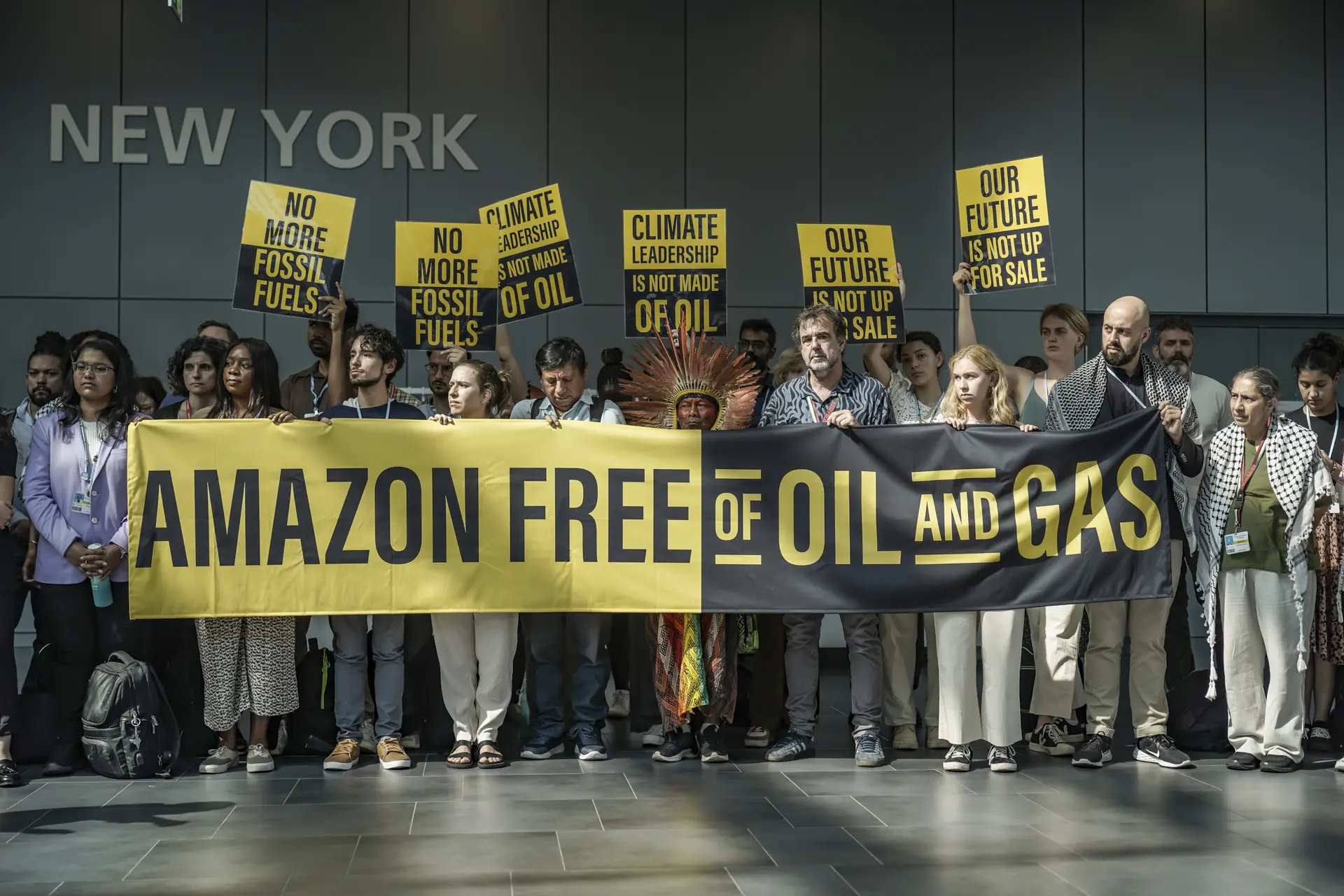
NO TO OIL IN THE AMAZON: CIVIL SOCIETY IS ASKING THAT NEGOTIATIONS MAKE ROOM FOR ELIMINATING FOSSIL FUELS. PHOTO: RAFA NEDDERMEYER/COP30 BRASIL AMAZÔNIA
A plan of action for every forest
Similar to fossil fuels, the agenda did not have a specific item on forests. This topic is covered by the Global Stocktake, which underscores the importance of conserving, protecting and restoring Nature and ecosystems and includes the goal of eliminating deforestation by 2030. The Global Stocktake discusses the need for support and financing to reach this goal, but it does not establish the creation of a plan to make this happen. There is a reference to paying for reduced emissions resulting from fighting deforestation – as is the case, for example, of the donations received by the Amazon Fund.
COP30’s Brazilian leaders intend to prioritize finance for standing forests and forest restoration on the action agenda, which covers commitments among groups of countries, companies, and organizations. The government hopes to launch the Tropical Forest Forever Facility, also known as the TFFF, a market mechanism for financing tropical forests. This fund is not, however, an instrument set for discussion within the climate negotiations. A resolution establishing formal synergy between the three conventions (on the climate, on biological diversity, and to combat desertification) that came out of Rio-92, the UN Conference on Environment and Development held in Rio de Janeiro in 1992, is also set to be approved in Belém.
Similar to fossil fuels, some social and environmental organizations argue Brazil should propose a COP decision on forests. Greenpeace released a proposed action plan to end deforestation worldwide. “We don’t yet have a structuring approach to the topic of forests within the Climate Convention,” according to Camila Jardim, of Greenpeace Brazil. “Brazil is an example of a forest country that has acted incisively to fight deforestation and could lead this plan,” she suggested.
What to do when the ‘ambition gap’ appears
Based on the Paris Agreement, every country should submit their new emissions reduction targets this year, also known as their Nationally Determined Contribution or NDC, listing targets up to 2035. Only 25 have submitted them so far, with China and the European Union among those who have yet to do so. In September, the Climate Convention should release a document on the new NDCs, which will say whether the group of countries’ commitments are sufficient to fulfill the Paris Agreement. A negative response is expected as is an “ambition gap;” in other words, the countries will need to exceed their promises to keep the planet’s average temperature from rising, ideally keeping this rise at under 1.5°C compared to the pre-industrial period, or at least under 2°C.
There is no formal item on the agenda of negotiations in Belém to discuss this possible “ambition gap.” It is nevertheless seen as certain that this topic will be discussed at the summit of government leaders preceding COP30, or at the conference itself. The question is whether this will result in any declaration or consensus document among all the countries. “If the assessment of the NDCs shows a situation in 2035 that doesn’t seem good, we’ll have to act collectively to change it. These are extraordinary times that require much more unity. We have to recover our sense of urgency at every level and we can’t be paralyzed by the international context,” according to diplomat Túlio Andrade, the head of strategy and alignment for COP30.
Adaptation will have indicators, but no guaranteed money
A decision at COP26, in Glasgow, Scotland, created a work program related to the global goal on adaptation, or GGA, set forth in the Paris Agreement. The idea is to establish indicators that can measure the progress countries make on measures to adapt to climate change. This item of the climate conference negotiations is more closely related to people’s daily lives.
The definition of 100 indicators, with the help of experts, should be finalized this year and approved in Belém. Negotiations were nevertheless nearly brought to a standstill at the Climate Convention meeting in Bonn because of resistance from wealthy countries to including means of implementation within the indicators, or rather, the monetary and technological resources for countries to adopt adaptation measures. The so-called “developing” countries argue this financing should be public, since adaptation is highly dependent on infrastructure works that do not bring in profits, making them unattractive to the private sector.
In the end, the means of implementation were kept in the text that will be considered in Belém. “The inclusion of indicators on means of implementation is certainly a good sign,” according to Thaynah Gutierrez, with Rede por Adaptação Antirracista, an anti-racist adaptation network. “Yet this good sign came with major uncertainty, since COP30 needs to guarantee financing to implement the indicators and targets agreed upon,” she explained. Thaynah sees another challenge in including Afro-descendent populations as a priority group in the adaptation agenda – this mention was at one point included, but ended up being taken out of the document negotiated in Bonn. “The COP30 president has been vocal in mentioning Afro-descendants at every round of negotiations, but behind-the-scenes dialog with the countries is still lacking.”
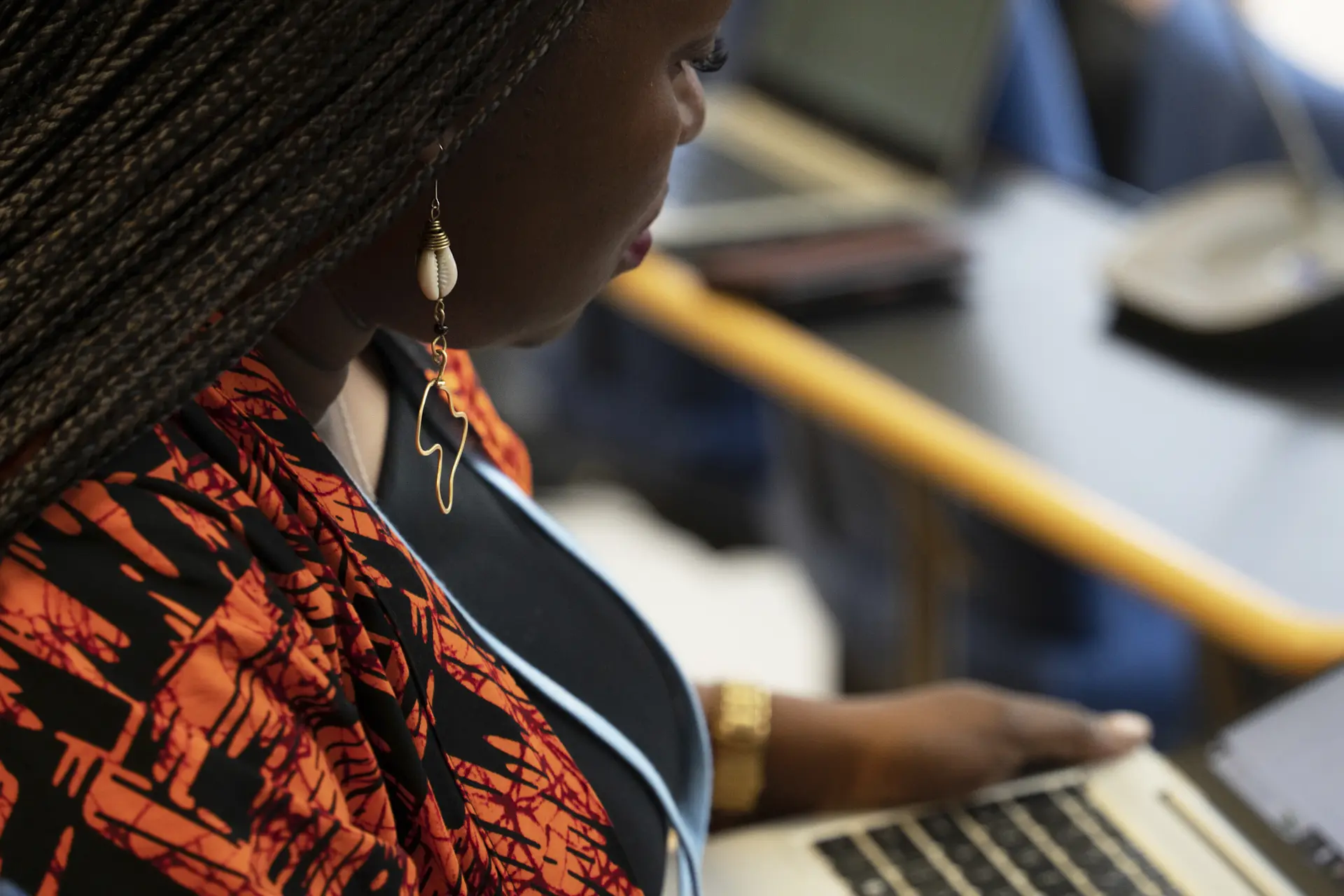
A WIN FOR BRAZIL’S BLACK MOVEMENT: AFRO-DESCENDANTS ARE MENTIONED IN THE TEXTS TO BE CONSIDERED IN BELÉM. PHOTO: LARA MURILLO/UN CLIMATE CHANGE
Afro-descendants included in the plan on gender
In 2014, a work program on gender and climate was established at COP20, in Lima, Peru, which created an action plan for consideration of gender issues in climate policies. This plan expired in 2024, and the work program is creating a new plan to replace it. For the first time, the draft that left Bonn for Belém mentions Afro-descendent women and girls as one of the groups that should be prioritized in climate policies.
This inclusion was the result of a strategy used by anti-racist and Black advocacy organizations in Brazil to intervene in climate negotiations. The demand relied on support from Brazil’s negotiators. Leticia Leobet, with Geledés – the Black Women’s Institute, recalled that Afro-descendants had already been mentioned at the Bonn meeting last year, but were removed when negotiation on the new action plan reached COP29, in Baku. “This year is a different, more optimistic scenario. Brazil proposed including Afro-descendants, and the COP is being held in Brazil. We’re expecting the Brazilian negotiators to hold the conversations needed to sustain the proposal,” Leticia said, recalling that Afro-descendants make up 56% of the country’s population.
The uncertain Baku-Belém roadmap on finance
In theory, the negotiation on finance within the climate conferences was finalized at COP29. In Baku, a new goal of US$ 300 billion per year was set for the wealthy countries to finance the other countries, a sum set to be reached only in 2035. This amount was seen as insufficient in light of needs estimated to cost at least US$ 1.3 trillion annually. There was also dissatisfaction with the text of the agreement because it attributes substantial weight to “mobilization” of private investments. This is why the topic reappeared at the Bonn meeting, but it is still unknown how it will be handled in the negotiations in Belém.
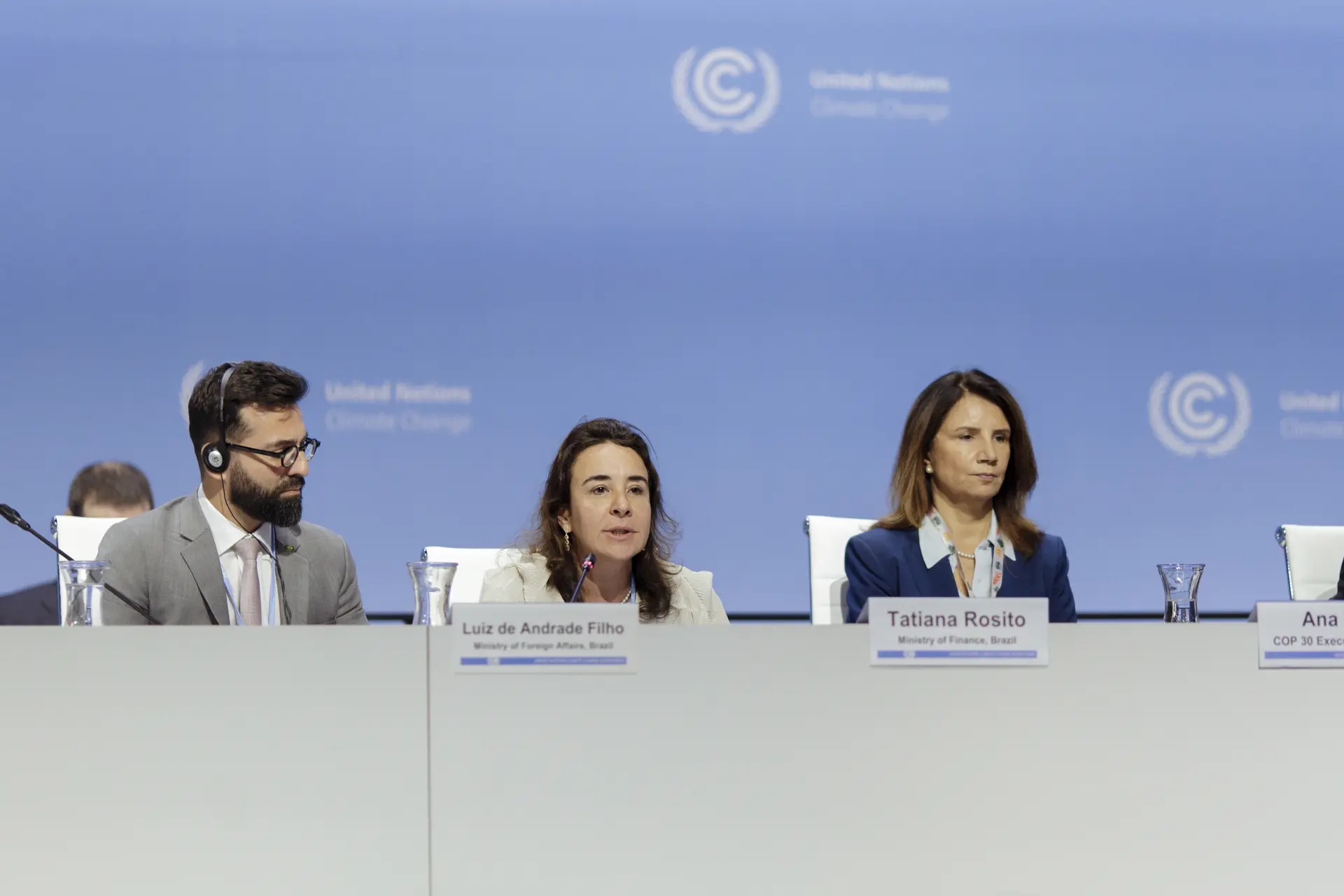
BRAZILIANS INTRODUCE A ROADMAP: THE COUNTRIES WILL NEED TO APPROVE A REPORT ON EXPANDING CLIMATE FINANCE. PHOTO: ISABELA CASTILHO/COP30 BRASIL AMAZÔNIA
What concretely exists is that the COP29 agreement tasked Brazil and Azerbaijan with creating a “Baku-Belém roadmap” to indicate means for climate finance to reach US$ 1.3 trillion per year. In Bonn, the Treasury Ministry’ secretary of international affairs, Tatiana Rosito, introduced some of the measures that will be proposed. Most are outside of the climate conferences’ scope of decisions, such as reforming multilateral development banks (institutions like the World Bank and the Inter-American Development Bank) and increasing “concessional” lending, which are loans with special payment conditions for countries with fewer resources. Wealthy countries are currently slashing so-called “development aid.”
At the discussions in Bonn, social and environmental organizations asked for greater emphasis on public financing of climate action and measures such as forgiving the foreign debt held by poorer countries so they can invest in the ecological transition. Another point seen as essential for civil society is the inclusion of the “polluters must pay” principle, establishing extraordinary taxes on the sectors that are the biggest emitters, like the oil industry.
One question hovering over the “roadmap” is whether or not it will somehow be incorporated into formal decisions at COP30. “The Baku-Belém roadmap is not an item under negotiation, it is a report resulting from the negotiation between the two presidents and will be presented to the countries,” WWF’s Tatiana Oliveira explains. “We don’t know if it will be mentioned, if it will be adopted, if it will get a boost in the final document. Without this, it lacks teeth, as we say in international law,” she adds. In other words, it could end up as yet another report without any real power to influence reality.
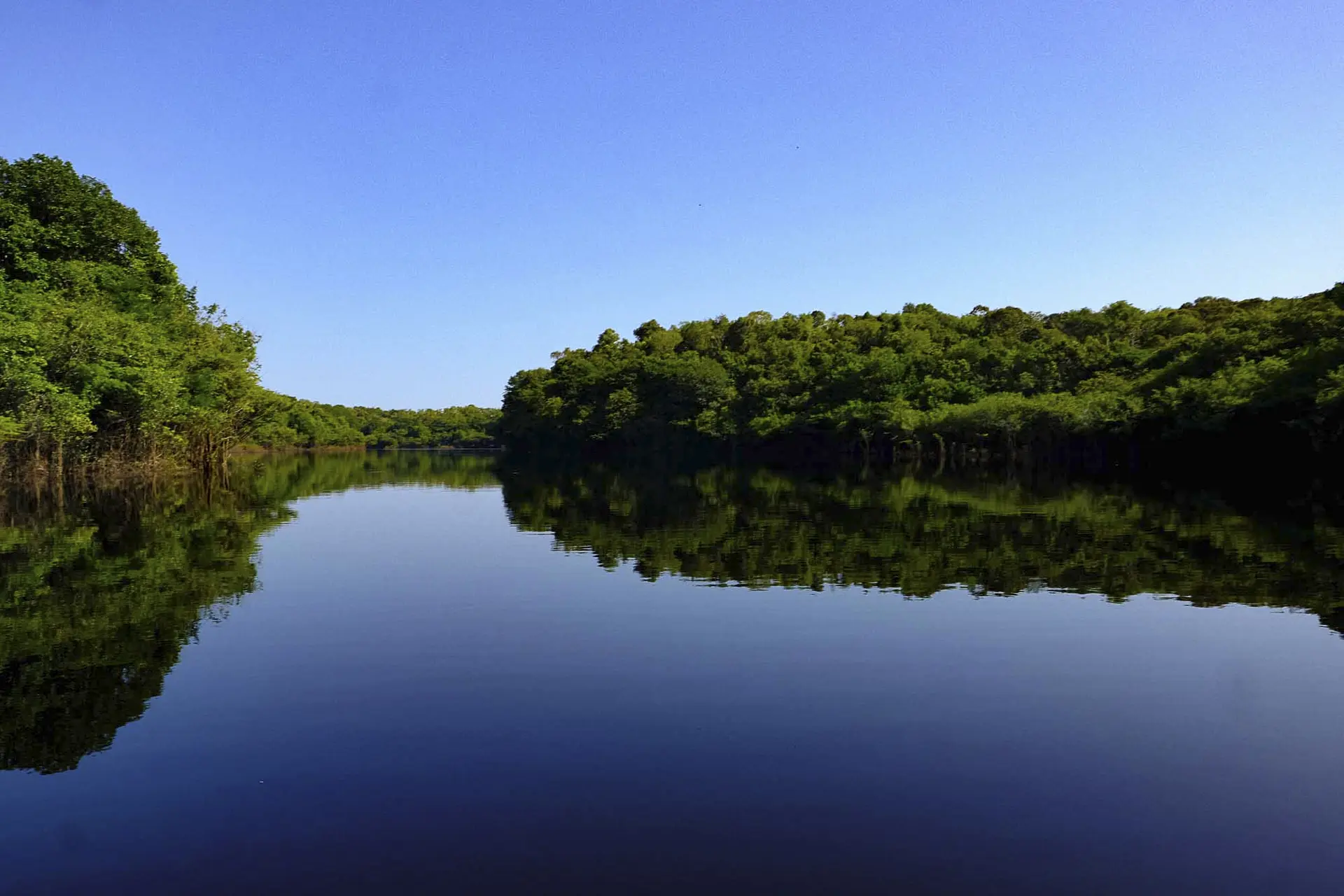
THE NEGRO RIVER SUSTAINABLE DEVELOPMENT RESERVE: THE FORESTS ALSO REQUIRE A DECISION TO FIGHT DEFORESTATION. PHOTO: ALBERTO CÉSAR ARAÚJO/AMAZÔNIA REAL
Report and text: Claudia Antunes
Editing: Talita Bedinelli
Art Editor: Cacao Sousa
Photo Editor: Mariana Greif
Fact-checker: Plínio Lopes
Proofreader (Portuguese): Valquíria Della Pozza
Castilian translation: Julieta Sueldo Boedo
English translation: Sarah J. Johnson
Copyediting and finishing: Natália Chagas
Editorial workflow: Viviane Zandonadi
Editor-in-chief: Talita Bedinelli
Editorial director: Eliane Brum

